
Avangarda i politika
One always searches for some symbolic point from which one can claim that something ended and something else began, even though there are no beginnings and no endings.
More...We kindly inform you that, as long as the subject affiliation of our 300.000+ articles is in progress, you might get unsufficient or no results on your third level or second level search. In this case, please broaden your search criteria.

One always searches for some symbolic point from which one can claim that something ended and something else began, even though there are no beginnings and no endings.
More...
The first part of this book gives an account of institutional and substantial changes in Europe, its new wars and new challenges, while the second part focuses on a comparative analysis of different transitions. The third part is dedicated to changes in the Croatian society and the transformation the state is going to. Finally, a synthesis of globalization processes is given, as well as projections of futures scenarios for development of transition and globalization processes.
More...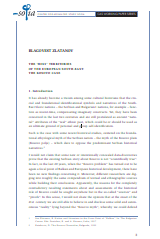
Although they do not lead to radical changes in publicity, phenomena like blogs and personal homepages have the potential to stimulate the renegotiation of existing relationships between society and the internet. A number of new questions appear. What are the effects of the hybridization of the public and private spheres in cyberspace? How does the Internet, characterized by non-hierarchical communication, gradually sprout new, non-standard forms of institution-alization? How does software and the statistics of sites and blogs serve to regulate the user’s behavior, roles and expectations? What are the democratic potential and the social effi cacy of these new practices? I will try here to answer some of these questions by looking into the development of Bulgarian personal homepages and blogs.
More...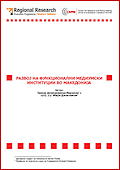
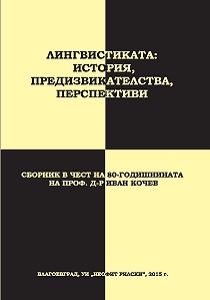
The present work presents the phenomenon of language play in various scientific papers. The general opinion of the scientists is that the language play in the media is related to the deliberate distortion of language and speech standards. The purpose is to achieve a certain effect (stylistic, aesthetic, comic, etc.). Some manifestations of the studied phenomenon are described: graphic, phonological , onomastic games and more.
More...
In the article the receptions of analysis of text of artistic works are examined in the light of the development of the printed media language style of the Standard Russian. On the exam-ples of word usages, typical for the magazine articles of the early twentieth century is proved that expressions of social and aesthetic estimation, typical for Russian opposition journalism of pre-Revolutionary epoch, come to light, reflecting the ideological and literary preferences of critics – authors of the journal «The Present» (Sovremennost), one of the most popular and authoritative Rus-sian printed.
More...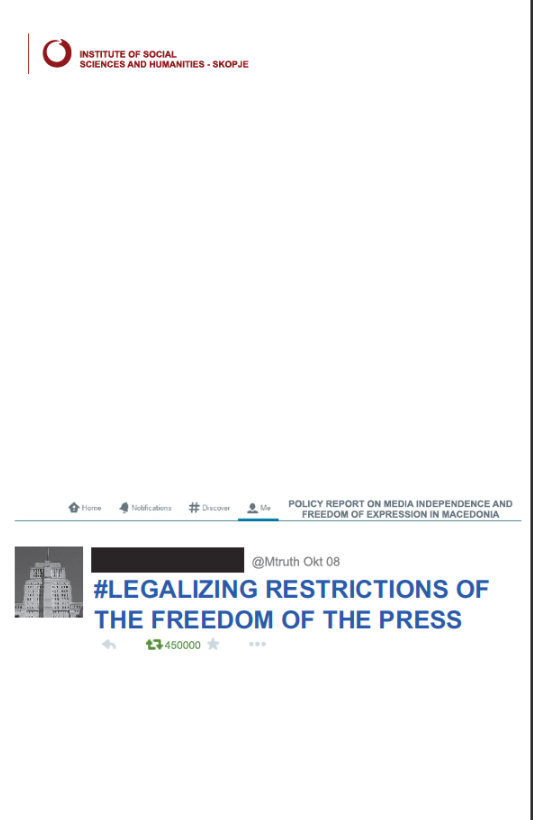
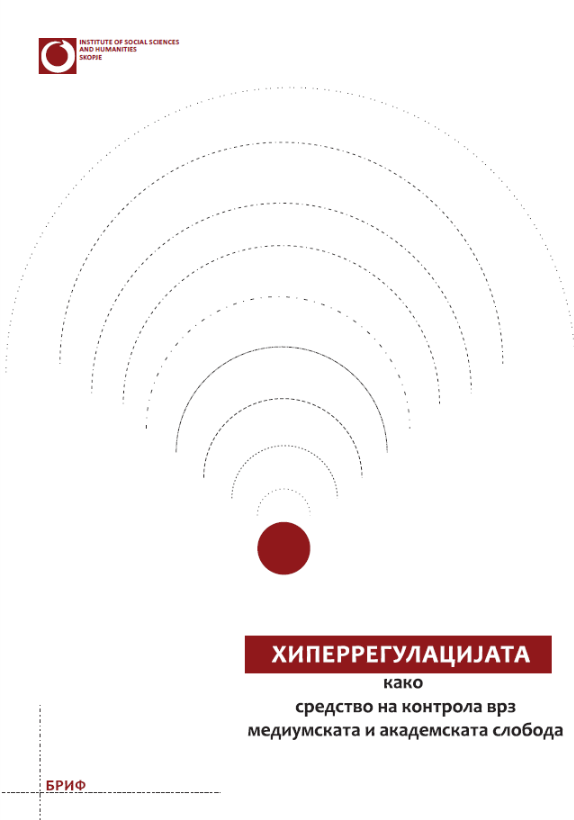
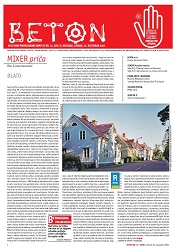
MIXER priča, Zvonko Karanović: Blato; CEMENT/Karaoke obračun, Saša Ilić: (Čobanov) odmor od literature, Saša Ćirić: Beli simposion na ćoravoj strani ulice; VREME SMRTI I RAZONODE, Momčilo Mihajlović: Eliksir, Tomislav Marković: Novogodišnji TV program; BULEVAR ZVEZDA, MRAZ, Deda; BLOK BR. V, Karta srpskog spasa 3
More...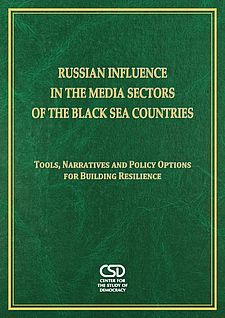
The Black Sea region has been subject to increasing pressure and uncertainty, following Russia’s occupation of parts of Georgia in 2008, the annexation of Crimea and destabilization of eastern Ukraine in 2014, and the continuing military stand-off to NATO in the Black Sea and beyond after the intervention in Syria in 2015. These developments have demonstrated Moscow’s determination to revise the post-Cold War order by applying pressure through hard- and softpower instruments on both members and associate partners of the EU and NATO in order to undermine Euro-Atlantic cohesion and unity. A particularly prominently deployed weapon of choice of the Kremlin has been media propaganda and disinformation. The report examines Russia’s presence and tactics in the media sectors of five Black Sea countries, by assessing the relationship between the Kremlin’s corporate and financial footprint in the media outlets of these states and the dissemination of pro-Russian and anti-Western propaganda content. It confirms that the patterns of ownership, economic dependency and (in)formal political links of media outlets in the countries under investigation to pro-Russian groups and interests are correlated with and reflected into corresponding trends of employing Russia-originating propaganda narratives.
More...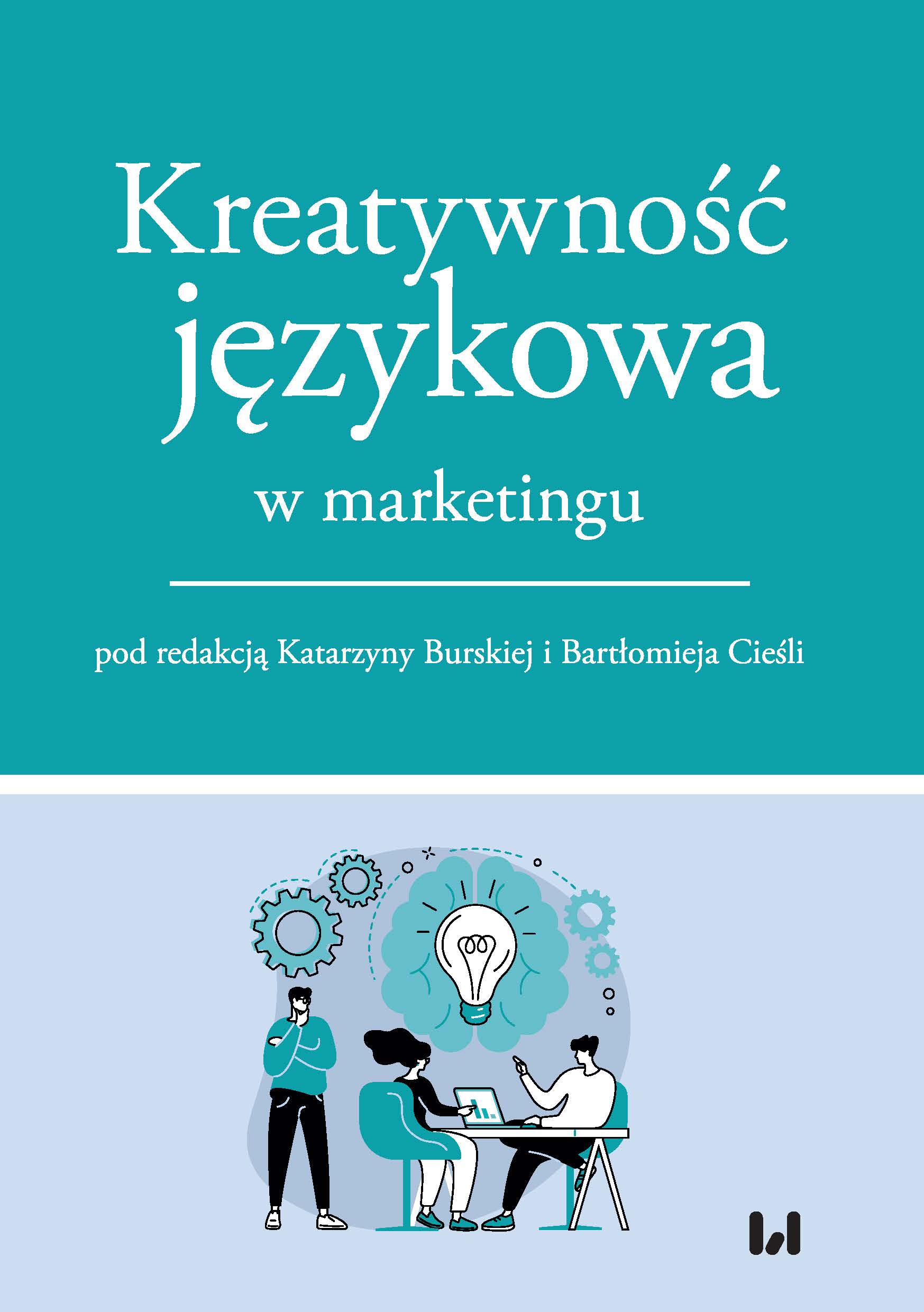
Municipal marketing plays a crucial role in the positioning of local governments on the investment, tourist and cultural markets. In the study, the authors present the determinants of municipal marketing, indicate the factors which have significantly contributed to its development and list the recipients of internal and external activities related to municipal marketing. The study also presents the results of research on the importance and effectiveness of city and town advertising slogans in public perception, the best communication channels used for promotion purposes and their characteristic features. The article also shows the results of the analysis of three slogans advertising towns located in the Dolnośląskie [ Lower Silesia ] Voivodeship.
More...
Čitalac se seća, od 2008. do znamenite 2012. u Srbiji i susednim zemljama prikazivao se rijaliti Survivor (u prevodu: onaj koji preživi). Učesnici programa, kako stoji u opisu, borili su se da prežive u nemogućim uslovima, bez dovoljno osnovnih sredstava za život. Survivor je neka vrsta izopačene poluigrane nadogradnje na čuvenu dokumentarnu seriju Survival. Survival iliti Opstanak, čitalac, moj vršnjak, seća se i toga, bio je ugaoni kamen i inače izvanrednog školskog programa ondašnje nacionalne – što znači: jugoslovenske – televizije. S početkom u ranim šezdesetim, Survival je, opet stoji u opisu, na primeru životnog puta od rođenja do smrti jedne posebne jedinke određene vrste prikazivao kako čitava vrsta opstaje u manje ili više prijateljskim uslovima.
More...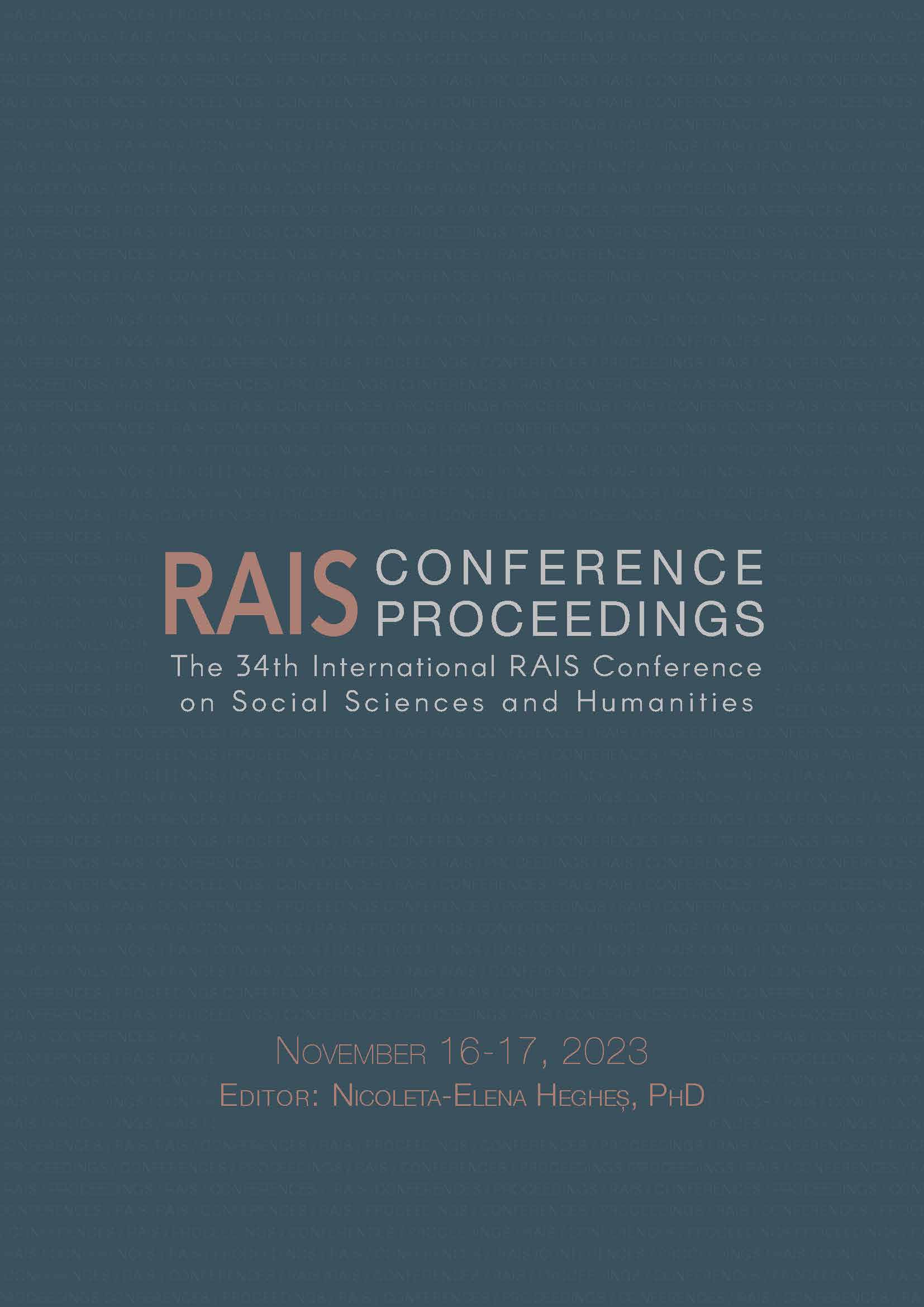
The contemporary realities of media production and use have brought about the need for media literacy, which has emerged as a subject matter in both the academics and public square. The popularity and pervasiveness of user-generated content in the form of citizen journalism, social media, alternative media, and others have invaded the once professionally processed information, whose sources are known and vetted by proud and logo-embossed media outlets. The result has forced on the world the need to train consumers of media content to become literate and discern for themselves the facts from the lies and the useful from the useless. This paper analyzes the causes that made media literacy binding, its methodology, and most directly, the need for a review of journalism education content and processes to match the contemporary mindset of the digital generation of students.
More...
The use of technology has steadily increased over the years, however, there is wide variation between people of different ages, with skills higher among younger “digital natives” and lower among older people. The daily use of the Internet among the Romanian population has increased considerably since 2014, proving the increase in the population’s comfort and confidence in using digital technologies and the Internet. Unsurprisingly, the level of digitization among businesses and individuals in Romania differs between regions. The level of digitization is higher in cities than in rural areas and the highest rate is, as expected, in Bucharest, Cluj and the North of the country. Reducing the knowledge and capacity gap between the country's areas can be done through a digitalization plan for the economy, similar to those published by the governments of many other countries, and through the digitalization of the interaction between SMEs and government institutions. The Romanian government is currently going through a significant process of digitizing both its own internal operations and the way it interacts with people and the business environment, for example through electronic signatures and the online takeover of tax-related matters. However, the constraints on government institutions derived from the lack of information determine opportunities for tax avoidance and evasion and inevitably favor compromise. Digitization can help alleviate these constraints in two ways: by implementing more accurate methods to verify the true economic results of taxpayers by connecting information existing in different parts of the tax system or by implementing more sophisticated tax systems.
More...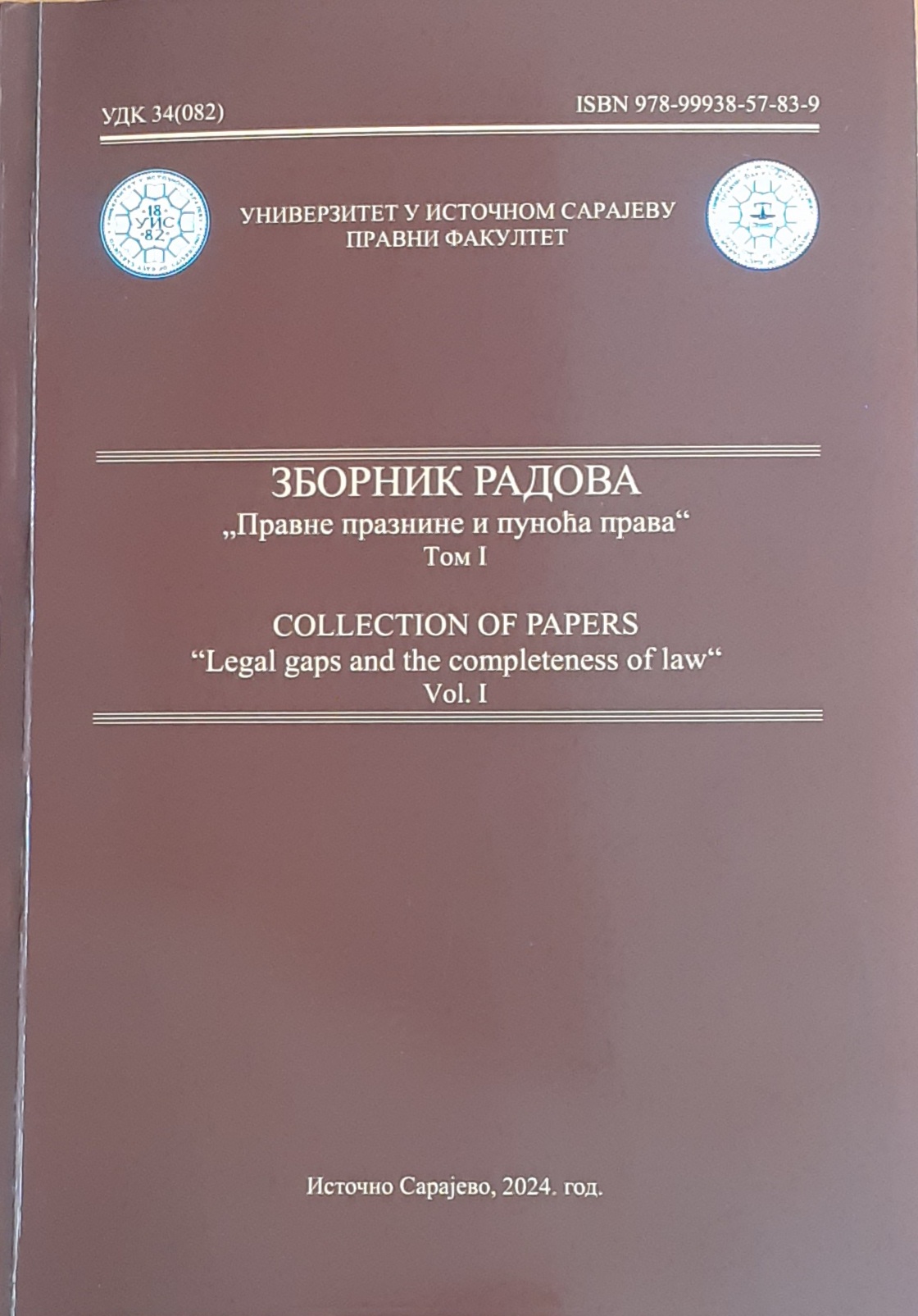
Great declarations of rights proclaimed the freedom of communication. This imperative is ingrained in most of the laws that organize this freedom. The most demanding interpretation is that the very purpose of communication is freedom. In the context of asymmetry between institutional actors of communication and its recipients, the recipients of communication are also the recipients of freedom, and freedom of communication must be realized in accordance with its purpose. The freedom of expression must be understood as a modality of the freedom of communication - not the opposite, as developed by liberal thinkers for whom the freedom of communication is only a new form or modality of freedom of individual expression. The privatization of media communication is a direct result of a private understanding of communication freedom that limits communication to its physical, technical, or economic aspects and, by broadening the laws that apply lets people make their own subjective claims about freedom. Degeneration of public regulation in self-finalized negotiation (corporatist and partisan) causes the privatization of media communication as well, which is the result of the state and national understanding of freedom. It is, therefore, not about suppressing the principle of sharing between "public communication" and "private communication" but rather about the recomposition of its modalities and the re-exploration between this sharing, nowadays reduced to a typical opposition between the state and the market. The digital revolution, which is perceived as the digitization and compression of computer data, can cause technological convergence, but it is limited to the universalization of infrastructure. Furthermore, the digital revolution does not cause economic convergence between different sectors of media communication (it instead increases competition between the media) nor a legal convergence (it rather risks causing the reduction of communications laws according to the common law of competition and the contract law). On the other hand, the digital revolution is an opportunity to formulate a renewed understanding of different communication rights - not to assimilate them, but to identify a common legal principle proper for media communication: the freedom of communication understood from a democratic perspective.
More...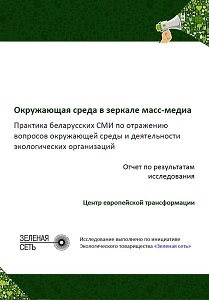
Issues of ecology, the state of the environment, nature protection occupy an increasing place in modern human activity. Since the 1980s, there has been a general ideological shift towards the "greening" of all spheres of life: from changes in the structure of production and consumption, the emergence of new technologies, alternative energy to the environmentalization of lifestyles and everyday behavior. The need to preserve the environment on a global scale has led to an increase in the importance of environmental issues in international politics, the adoption by national states of common environmental standards, a conceptual review of the foundations of economics ("green economy") and politics (obligatory participation of citizens in making environmentally significant decisions). At the same time, in Belarus, with widespread public understanding of the importance of environmental issues, these issues are far from the first place on the social and political agenda. According to public opinion polls, only 2.5% of Belarusians put ecology on the first place in the list of areas most in need of reform. Such a situation is determined not only (and not so much) by the objective state of affairs and the priority for society of other issues of the country's development, but by the attitudes of the main subjects forming the agenda. State policy, the activities of civil society organizations, the priority of displaying certain topics on the pages and screens of the mass media largely shape the Belarusian society's view of ecology.
More...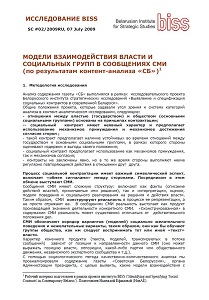
The content of the newspaper "Soviet Belarus" was analyzed for 1 year: from July 1, 2007 to June 30, 2008. A stratified nested sample was used: the total number of newspaper issues published in 1 year was divided by month, within each month five homogeneous strata were formed (issues published on Tuesday, Wednesday, Thursday, Friday, Saturday); one number was randomly selected from each loss. Inside the issue of the newspaper, all materials were viewed and those in which the object of attention was the interaction of the authorities (or individual representatives of this or that institution of power) and any social group (or individual representatives of this or that group) were selected for analysis.
More...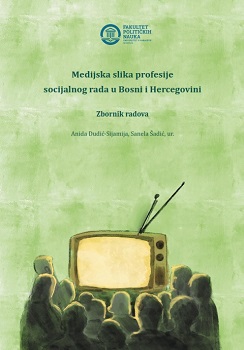
Mediji u današnjem društvu predstavljaju značajan izvor informiranja za pojedinca, te svoju ulogu imaju u životu čovjeka od djetinjstva do treće životne dobi. Kvaliteta komuniciranja informacija koje se prenose medijskim putem značajna je kako za informiranje društva tako i za edukaciju, ali i formiranje određenih stavova o pojedinoj temi i događaju koji se predstavlja. Formirajući mišljenja i stavove uloga medija može se promatrati iz kuta pozitivnih ishoda za pojedinca i društvo, ali i onih manje pozitivnih pa čak i negativnih. Način izvještavanja o pojedinom događaju i prezentiranja određene teme u javnosti ovisi o cilju koji se postavlja u pozadini medijskih izvještavanja. Profesija socijalnog rada u medijskim sadržajima može biti prikazana na različite načine od one pozitivne do negativne uloge koja se ponekad u izvještavanjima koristi za naglašavanje negativnosti u obavljanju pojedine profesije.
More...
Konstruktivno novinarstvo kao „forma novinarstva koja uključuje primjenu principa pozitivne psihologije u procesu kreiranja novinarskih sadržaja s ciljem da se kreira produktivno i angažirano medijsko izvještavanje (McIntyre & Gyldensted, 2017: 23) ponovo se atuelizira 2014. godine sa osnivanjem Constructive Institute. Jedan od osnivača ovog Instituta je Ulrik Haagerup u svojoj knjizi Konstruktive vijesti koja se smatra temeljnim štivom u oblasti konstruktivnog novinarstva, objašnjava kako je, radeći u novinarstvu, vremenom postao dio onog što naziva „kulturom vijesti“ ili „biznisom povjerenja“ (engl. „trust business“), „kulturom negativnosti“ koju odlikuju fokus na anomalije i poremećaje u društvu, dok je istovremeno vjerovao da radi u funkciji istine i povjerenja javnosti.
More...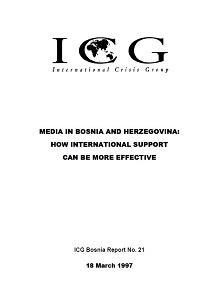
The media approach of international organisations in Bosnia and Herzegovina is unimaginative at best. The principal point of contact with journalists is a daily press conference which is held in English without translation. While the foreign press corps is well catered for, Bosnian journalists feel that they are ignored and consider the international community’s approach imperialistic. ICG proposes a series of measures for the international community which, if implemented, could help change the role of the Bosnian media from one which is exacerbating tension to one which could contribute to restoring trust between the country’s peoples.
More...